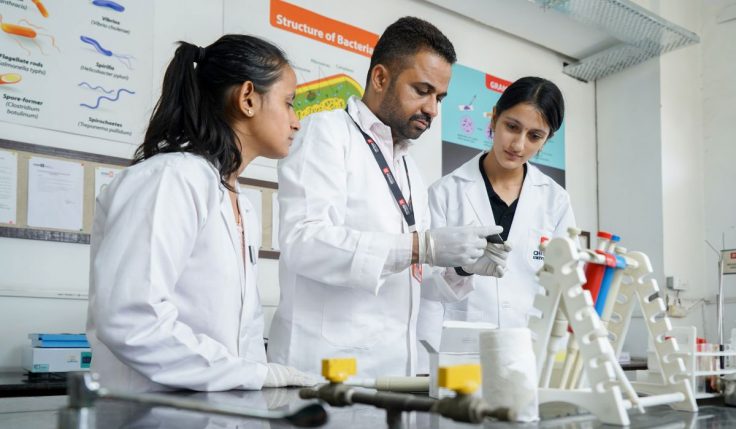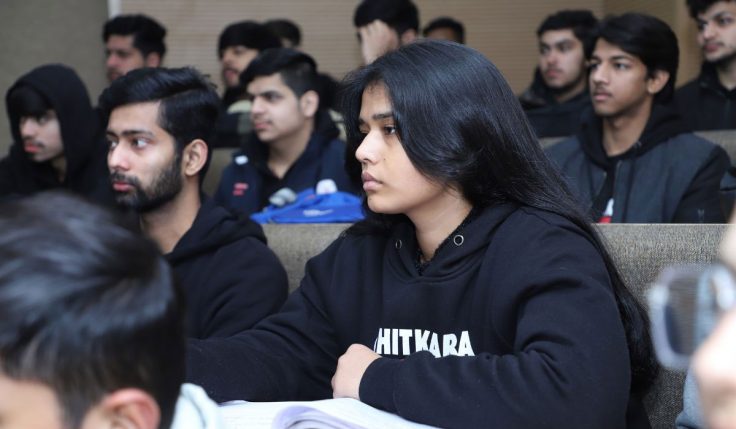The field of journalism is ever-evolving, and with the rise of digital media, the demand for journalists has never been higher. With the internet and social media playing such a prominent role in our lives, there is a need for journalists who can provide accurate and reliable information.
India is a broad and diverse country, with an upscale culture and history. This makes it an ideal place for journalists to work. There are many career opportunities for journalists in India, depending on their interests and skills. To become a journalist, you need to have a graduate degree in journalism. You can enroll in B.A. in Journalism & Mass Communication for the degree from Chitkara University.
What is Journalism?
Journalism is the activity of collecting, verifying, and presenting news stories. Journalists typically work for news organizations such as newspapers, magazines, radio stations, or television networks.
The practice of journalism has ethical implications, as journalists are expected to present information in a fair and unbiased manner. This can be challenging, as journalists may have to present information that is controversial or unpopular.
Journalism is an important part of democracy, as it allows citizens to be informed about what is happening in their country and the world. It is also a vital source of information for businesses and other organizations.
Different Types of Journalism
Journalism is the activity of collecting, analyzing, verifying, and presenting news and information. Journalists are the people who carry out this activity. Journalism can be divided into four main categories:
- News
- Features
- Reviews
- Opinion
The news is a type of journalism that covers events that are happening at the present moment. Features are stories about people, places, or events that are not time-sensitive. Reviews are articles that evaluate and critique a product, service, or performance. Opinion pieces are articles that express the author’s point of view on a particular issue.
There are many different types of journalism, and each has its own set of standards and practices. As a result, there is a lot of diversity in the field of journalism.
Job Opportunities in India
Journalism is more than just reporting the news. It is a profession that requires a specific skill set and a deep understanding of the world around us. The practice of journalism can be divided into a number of different specializations, each of which requires a different set of skills.
For example, investigative journalism requires a strong understanding of the legal system and an ability to find and interpret complex data. On the other hand, photojournalism relies heavily on visual storytelling and capturing images that evoke emotion.
The word “journalist” is often used to describe someone who writes for a newspaper or news website. But there are many different types of journalists, each with their own distinct role to play in the news ecosystem.
Here are some of the different types of journalists you might encounter:
- News reporters: These are the journalists who collect facts and write stories for news outlets.
- Feature writers: These journalists write human-interest stories or in-depth profiles of people, places, and things.
- Columnists: These journalists write regular opinion columns for news outlets.
- Reviewers: These journalists write critical reviews of books, movies, music, etc.
- Photojournalists: These journalists use their photography skills to tell stories or document events.
There are many different types of jobs for journalists, each with its own distinct set of skills and responsibilities. No matter what type of journalist you are, your work is important in helping people understand the world around them.
Below mentioned are some of the career opportunities you can explore after completing your B.A. in Journalism & Mass Communication degree:
- Brand Manager
- Corporate Relations Officer
- Announcer, Art Director
- Publicity Manager
- Newscaster
- Activities Director
Scope of Journalism In India
Journalism is a profession that has long been considered an important aspect of democracy. In recent years, however, the profession has come under attack from various quarters. The role of the media has been questioned, and the very idea of journalism as a public good has been challenged.
In India, journalism is a relatively new profession. It began to develop in the late 19th century, with the rise of the Indian national movement. The first Indian newspapers were started by Indians who had been educated in Britain. These newspapers were used to spread the message of the national movement, and to rally support for the cause.
Today, journalism in India is a booming industry. There are hundreds of newspapers, TV channels, and websites, all vying for attention. The competition is fierce, and only the best journalists survive.
BA in Journalism & Mass Communication From Chitkara University
The BA in Journalism & Mass Communication is designed to equip students with practical knowledge, skills, and experience in media production and management. It provides students with theoretical knowledge in journalism as well as mass communication. The program also focuses on building media professionals who are capable of working in a fast-paced environment. This will give them an edge over their contemporaries who have not been exposed to such a work environment.
Chitkara University has strong connections with renowned organizations to give practical experience. The future of journalism is steadily shifting towards digital reporting, with blogs and social networking sites playing a vital part in breaking news stories and their dissemination. The overall demand for journalists remains strong, however, and if you’re looking to pursue this as a career, you’ll likely find great job security and opportunities.






